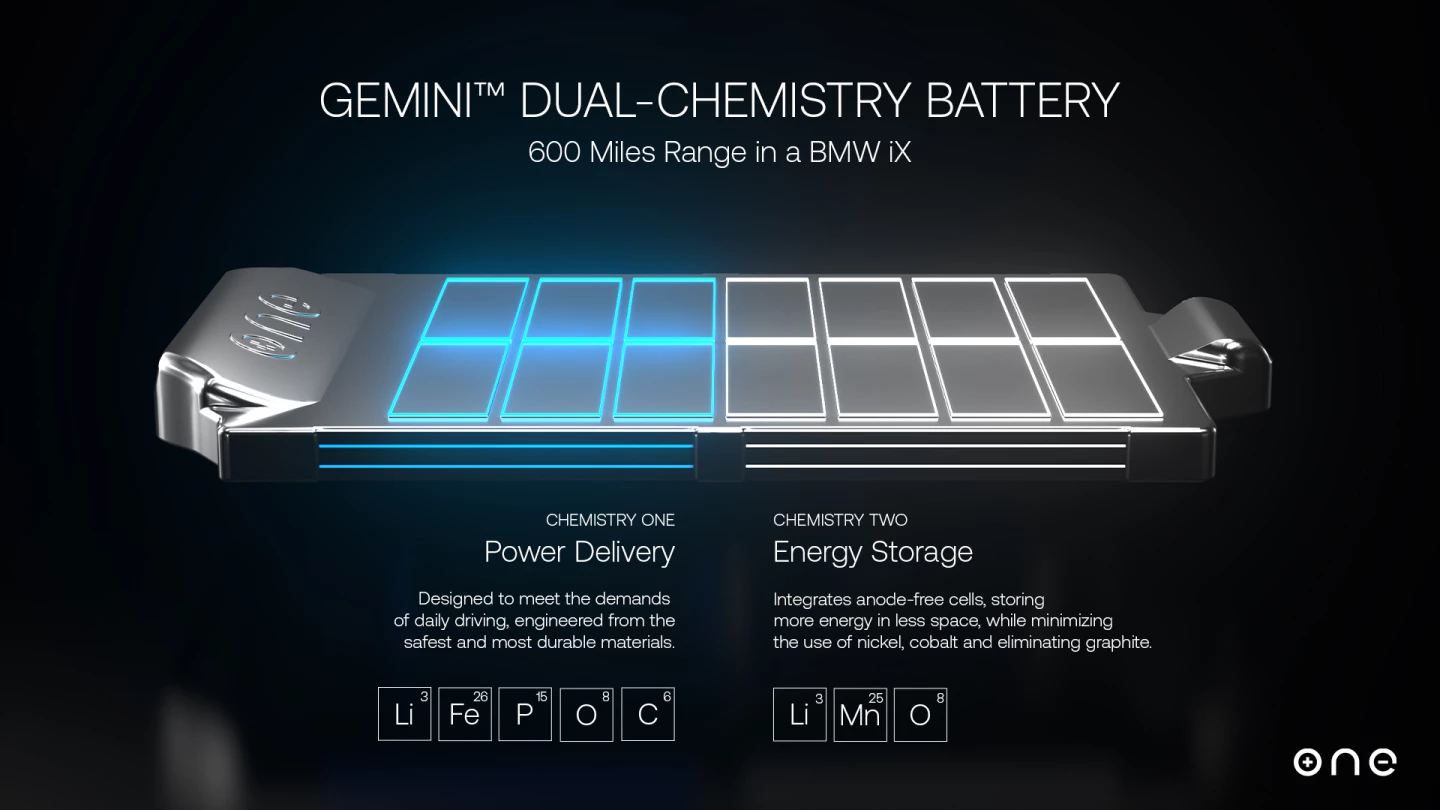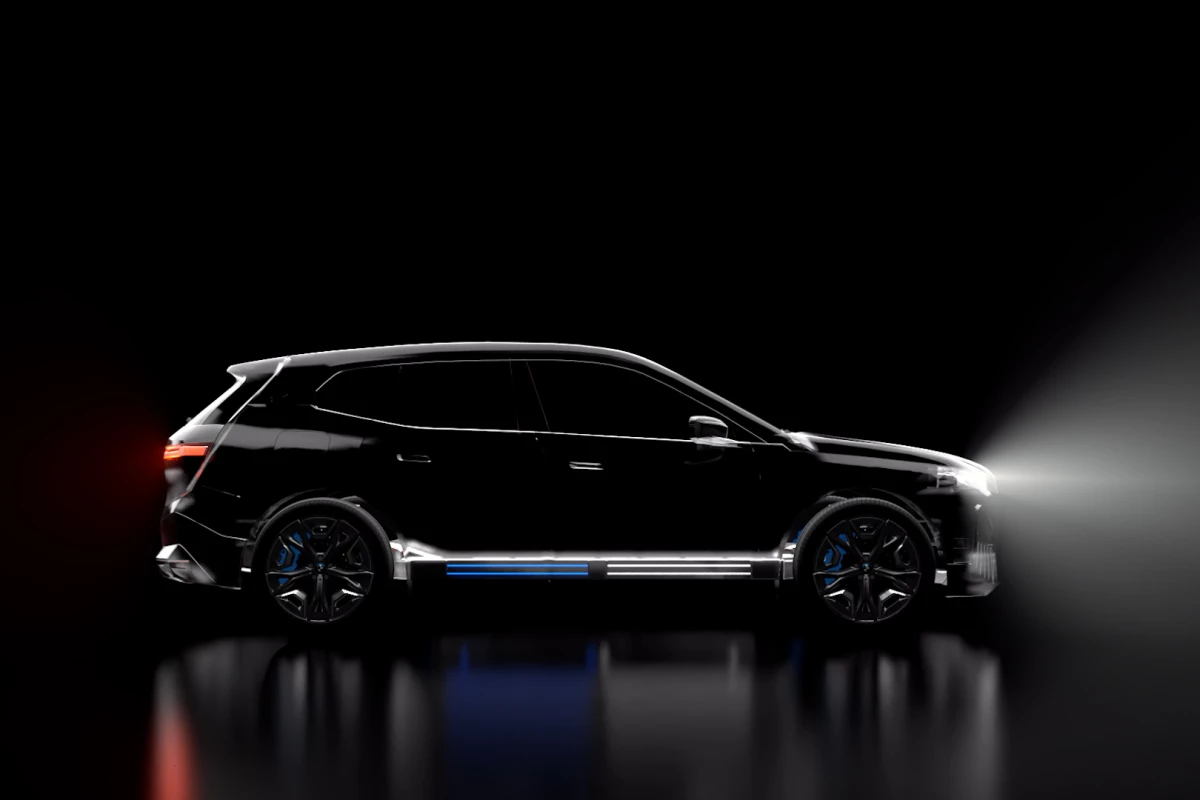Michigan's Our Next Energy (ONE) believes massive range figures are the path forward for EVs. Its experimental Gemini battery pack nearly doubled the range of a Tesla Model S in 2021, and now it's signed a deal with BMW to do the same for the iX SUV.
BMW has taken a special interest in ONE, to the point that the Bavarian company's California-based venture capital arm, BMW i Ventures, recently led a US$65-million funding round that also brought in Bill Gates's Breakthrough Energy. ONE's passenger car solution, the Gemini battery pack, is claimed to double the energy density and range of the typical EV battery pack by splitting the battery system in two, and running two different battery chemistries.
The smaller portion of the pack is focused on power density – delivering bulk energy to the wheels when needed, and handling fast-charge cycles. ONE doesn't give away much detail on the chemistry, but notes that it incorporates lithium, iron, phosphor, oxygen and carbon, and CEO Mujeeb Ijaz told Automotive Engineering it's not a simple lithium-iron-phosphate (LFP) design.
The remainder of the battery is focused on energy density, and acts like a range extender for the high-power section. It uses lithium, manganese and oxygen, and since it doesn't need to deal with high power loads, ONE's engineers have been free to focus on packing in as much energy as possible.

The resulting pack has its limitations; it's not going to be great for track days or other sustained high-power use cases, so if (like some of my favorite lunatics) you're the kind to whack your Tesla into Ludicrous mode and floor the pedal at every red light, this pack would be a buzz kill. It might also be comparatively slow to charge, since the range extender bit will be slow both in charging and discharging. But under real-world driving conditions, it can deliver a monster range and capacity boost that'll make charge time a non-issue for most drivers.
ONE pulled the ~100-kWh battery pack out of a Tesla Model S last year, and replaced it with a Gemini pack holding 203.7 kWh. In testing, the Tesla managed a 752-mile (1,210-km) road trip averaging 55 mph (88.5 km/h), as compared to its EPA rated range of 405 miles (651 km).
Now, ONE and BMW have teamed up to demonstrate the Gemini battery in a less aerodynamic EV. The BMW iX is a high-performance "sports activity vehicle" with a standard battery holding 111.5 kWh and an EPA-rated range up to 324 miles (521 km). BMW has agreed to build a Gemini-powered demonstrator car that the companies expect will deliver 600 miles (966 km) of driving range.
The prototype iX should be finished by the end of this year, and while BMW is (as always) choosing its words carefully, the Gemini pack is certainly being considered as a potential future option for electric Beemers.
“We are well-positioned to incorporate ONE’s IP into BMW’s SAV line,” said Jürgen Hildinger, Head of High Voltage Storage at BMW Group New Technologies. “We are confident that given economic viability, this can lead to commercial opportunities and strategies to integrate ONE’s battery technologies into models of our future BEV product line-up.”
Enjoy a largely substance-free video below, if you're happy to admit your time's not that valuable.
Source: ONE






